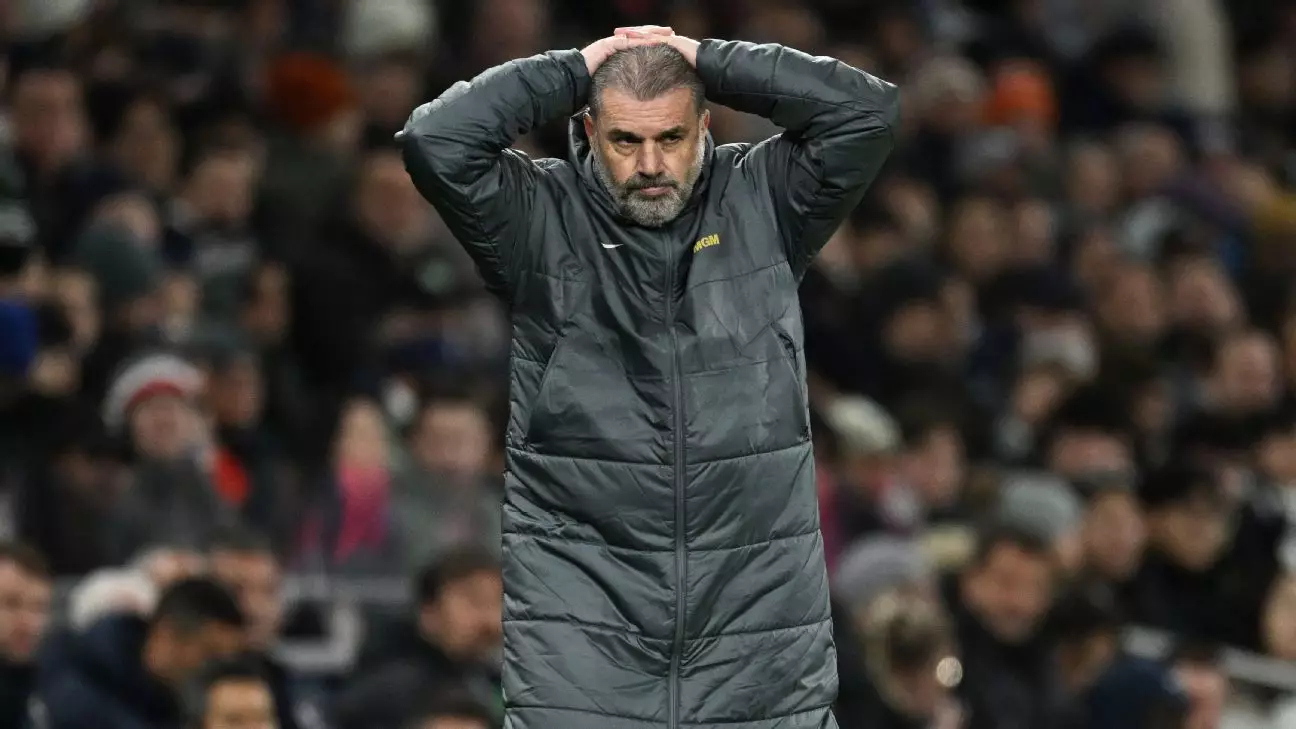Ange Postecoglou, the current manager of Tottenham Hotspur, faces a turbulent period as the club grapples with a disappointing run of form, exemplified by a recent 4-3 defeat to local rivals Chelsea. Despite an initially promising start with early goals from Dominic Solanke and Dejan Kulusevski, Spurs squandered their advantage as Chelsea mounted a fierce comeback. Postecoglou’s commitment to an attacking style has never been in question, but the challenges that arise from injuries and squad depth are beginning to test that philosophy to its limits.
Tottenham, sitting 11th in the Premier League and facing significant criticism from fans, has seen its season spiral downward. After this latest defeat, which marked their seventh in the league, frustration was palpable among supporters, many of whom expressed their displeasure through boos at the final whistle. The once eager optimism of the season’s start has shifted, placing Postecoglou in a precarious position as he navigates the expectations of both the club and its fanbase.
One significant factor in Tottenham’s struggles has been the injury crisis plaguing the squad. Key players like Cristian Romero, Brennan Johnson, and Micky van de Ven have seen their contributions limited due to various ailments. Romero’s early exit against Chelsea was particularly damaging, as the team lacked the necessary personnel to maintain their attacking prowess and defensive solidity.
These injury problems have left the manager with limited options. “It’s a tough moment because there are all these tools you can possibly use as a manager when you are going through tough moments to turn things around,” Postecoglou remarked in a recent press conference, illustrating the complex nature of his task. The manager’s call for understanding from fans is not without merit, as the current context requires more than just tactical acumen; it demands patience and belief from all involved.
After the crushing defeat at Bournemouth earlier, Postecoglou felt it necessary to confront the angry fans directly, reinforcing the idea that he is aware of and sensitive to their frustrations. His proactive attempt to maintain a dialogue highlights his leadership style, despite the on-field results not aligning with expectations. As pressure mounts, many coaches may choose to deflect blame; however, Postecoglou has taken a more transparent approach, emphasizing the need for unity and determination within the squad.
While there is no denying that results must improve, it is also important to acknowledge the commendable effort the players are exerting amid adversity. The manager has praised their dedication, suggesting that the current difficulties are more about system limitations than a lack of application. This perspective could be key in motivating his players to rise above their current challenges.
A notable point of contention for Postecoglou has been the role of officiating, particularly regarding the use of VAR. His comments regarding referee Anthony Taylor’s decisions echoed a widespread sentiment among managers about the inconsistencies and indecipherable nature of modern officiating. Postecoglou’s criticism reflects an overarching frustration with a system that appears to lack decisive control, leaving players and coaches alike feeling vulnerable to arbitrary judgement.
In a sport that thrives on clarity and fairness, the ambiguity surrounding officiating decisions can significantly impact a team’s morale. By addressing these concerns publicly, Postecoglou demonstrates a willingness to challenge not just his players, but the prevailing systems that govern the game. This could resonate well with fans who are equally frustrated by perceived injustices on the field.
Ultimately, what Postecoglou must do is foster a renewed sense of confidence among his squad while remaining steadfast in his beliefs about the team’s playing style. As he asserts, “there is a real conviction in what we are doing,” this belief forms the foundation upon which Tottenham’s future performances can be built. The next months will not only test the team’s capabilities but will also serve as a defining moment for Postecoglou’s managerial journey.
If Tottenham can harness the conviction Postecoglou advocates, the path to recovery may indeed be within reach. While challenges abound, it is precisely in these moments that a team’s character is forged, and for Spurs, the hope is that they can emerge stronger, more resilient, and ultimately, more successful. The season is far from over, and there remains ample opportunity to reclaim their standing both in the league and, crucially, in the hearts of their supporters.

